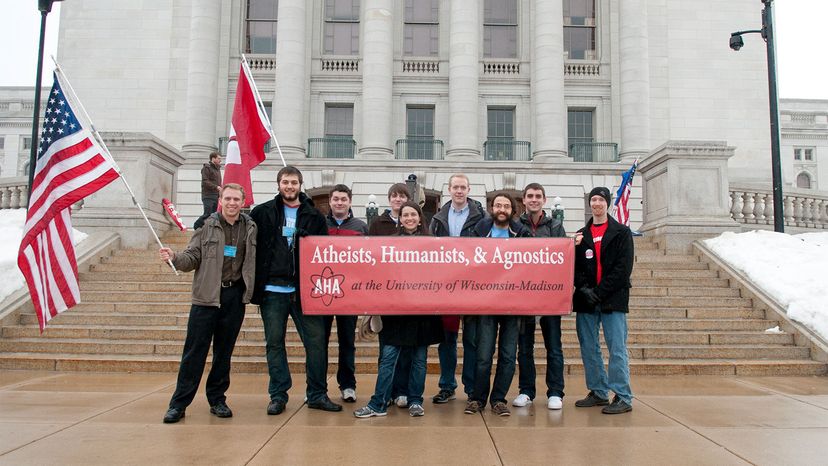Agnostics are nearly always lumped together with atheists as a type of "non-believer." The Pew Research Center, defined religious "nones" as being either atheists, agnostics or not affiliated with any particular religion. But the fact is, you can be agnostic and also a true-believing, church-going religious dude.
"You could believe that God exists but not think you have enough evidence to make a knowledge claim," says Draper. In other words, you could believe on faith that God exists, but ascribe to the agnostic position that God's existence cannot be proven by physical evidence or rational arguments.
Such a person would be an agnostic theist. There's even a school of theology called apophatic theology that claims that God is inherently unknowable. Thomas Aquinas, the 13th-century philosopher and theologian, wrote, "Now we cannot know what God is, but only what God is not; we must therefore consider the ways in which God does not exist, rather than the ways in which God does."
While it's technically true that you can be both an agnostic and a faithful believer, it's far more common for agnostics to highly doubt the existence of God, even if they can't ultimately prove it. Bertrand Russell, the brilliant British philosopher and mathematician, wrote an excellent treatise on agnosticism in which he explained why the agnostic and atheist positions often overlap:
"The agnostic suspends judgment, saying that there are not sufficient grounds either for affirmation or for denial. At the same time, an agnostic may hold that the existence of God, though not impossible, is very improbable; he may even hold it so improbable that it is not worth considering in practice. In that case, he is not far removed from atheism. His attitude may be that which a careful philosopher would have towards the gods of ancient Greece. If I were asked to prove that Zeus and Poseidon and Hera and the rest of the Olympians do not exist, I should be at a loss to find conclusive arguments. An agnostic may think the Christian God as improbable as the Olympians; in that case, he is, for practical purposes, at one with the atheists."
As we said at the beginning, the reasons for identifying as agnostic are myriad and different for every person. Draper, who has participated in high-profile debates with Christian philosophers, calls himself a "local atheist" and "global agnostic."
"I'm an atheist about the all-powerful, all-knowing, all-good God," says Draper. "I'm agnostic about God in a broader sense. Is there some being that qualifies for the title God? There could be such a thing."
Learn more about agnosticism in "Agnosticism and Christianity and Other Essays" by Thomas Henry Huxley. You may also like "Why I am Not a Christian and Other Essays on Religion and Related Subjects" by Bertrand Russell. HowStuffWorks picks related titles based on books we think you'll like. Should you choose to buy one, we'll receive a portion of the sale.
